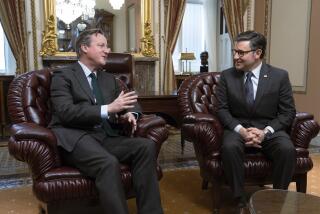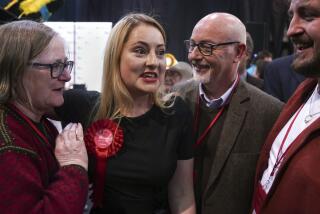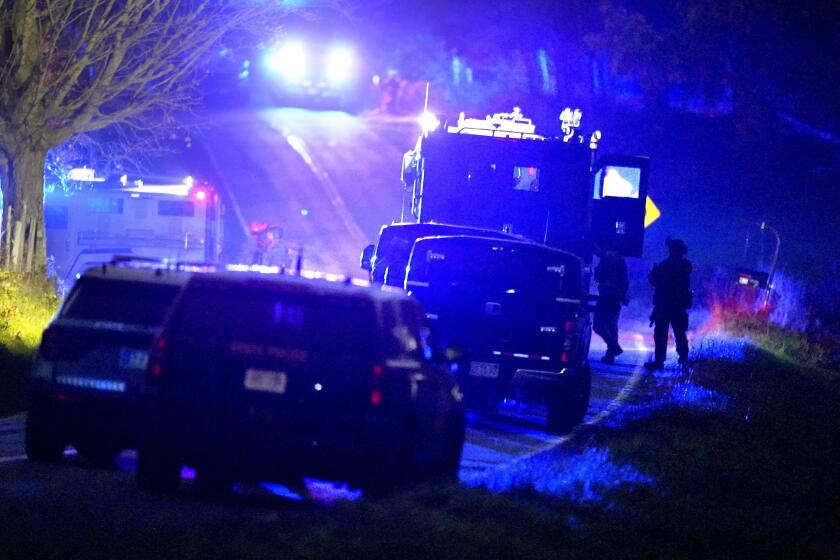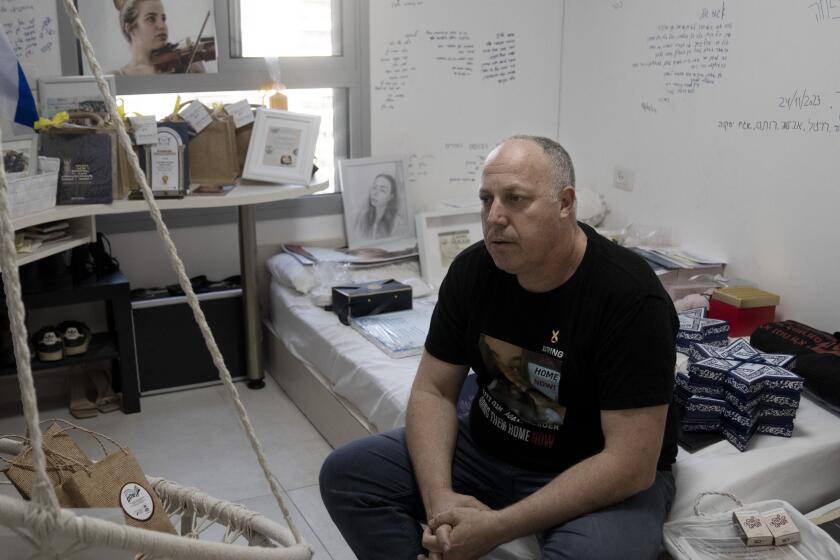In Scotland, two sides rally on eve of independence vote
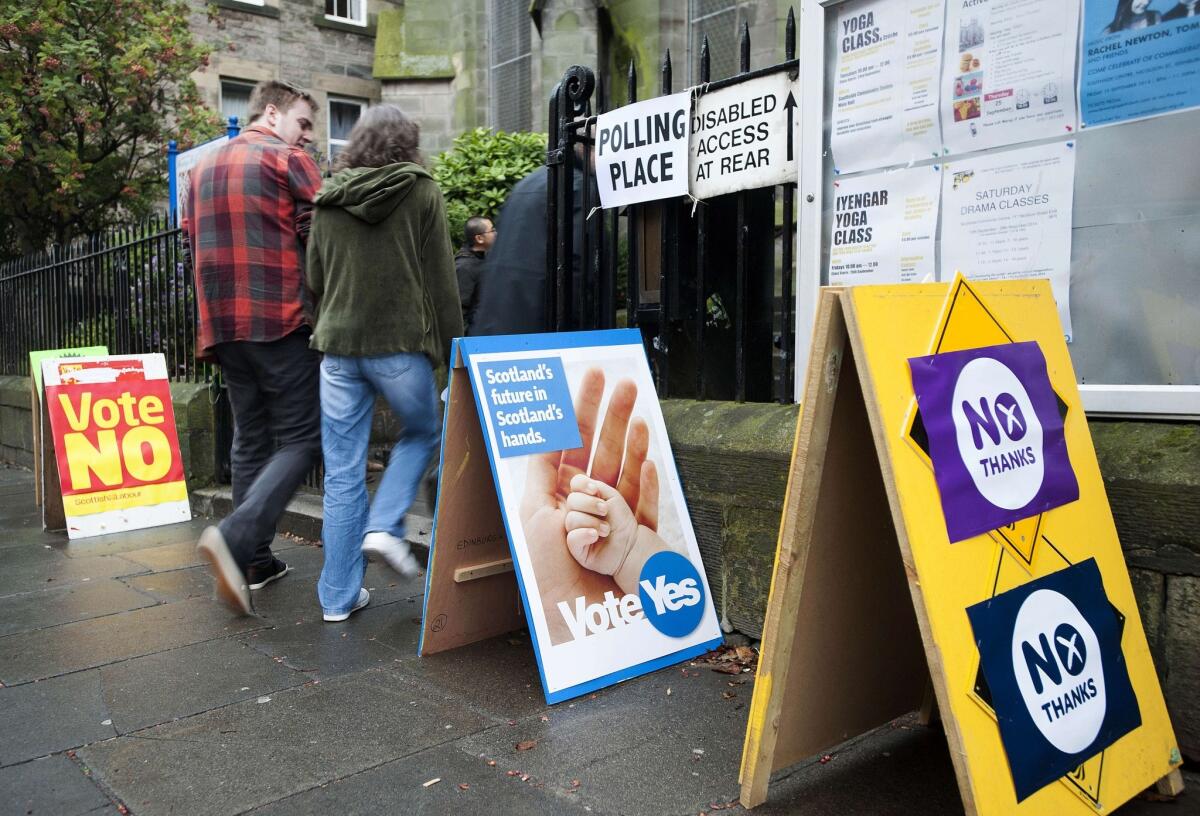
Scotland was a flurry of last-minute campaign activity hours before voting began Thursday on a referendum to determine whether it would leave Britain.
Advocates on both sides of the debate — “yes” for independence and “no” for unity — spread across Scotland on Wednesday to rally support as polls showed the outcome appeared too close to call.
In Edinburgh, “no” campaign volunteer Andrew Williams walked up a long flight of stairs in a run-down tenement building, knocking on doors and sliding leaflets through mail slots.
Although he’s for keeping the United Kingdom together, he believes Scotland’s “Better Together” campaign has done a poor job of making its case. As polls narrowed in recent weeks, apparently giving independence a better chance of winning than it had previously, Williams decided to go out and help.
“’Yes’ is better organized,” Williams said. “Just walking around the streets you could see how many ‘yes’ posters there were and how many pop-up stalls.”
“Yes” supporters say they want to take power from British politicians in London and place it in the hands of decision-makers in Scotland. “No” campaigners warn that independence from the United Kingdom, which would reduce Britain to England, Wales and Northern Ireland, would bring unwanted economic risks. Questions remain over what currency an independent Scotland would use and whether it can rely on continued tax revenue from its dwindling oil reserves in the North Sea.
The union between Scotland and England began more than 300 years ago. More than 4 million people are registered to vote in Scotland, which has a population of about 5.3 million people, and turnout is expected to exceed 90%.
The referendum has sparked intense interest and drawn many of those who had been disengaged from politics. The electorate was even expanded to include 16- and 17-year-olds. And both sides have pushed to register as many new voters as possible over many months of campaigning.
Taken together, the latest polls place the pro-union “no” campaign with a slight lead at about 51%. But Rachel Ormston of NatCen Social Research, which has monitored the campaigns closely, said such a high turnout makes the outcome of the referendum very difficult to predict.
“The polls could be getting it wrong,” Ormston said. “This is a big worry for polling companies because obviously all of their models have been sort of honed looking at people’s past vote.... Obviously this referendum throws all that up in the air.”
With that uncertainty in mind, neither campaign was leaving anything to chance Wednesday.
“My real concern is some people might lose their nerve at the last minute and think, ‘Stay with the UK,” said Colin Webster, a “yes” volunteer who handed out fliers on Edinburgh’s bustling Princes Street. “Here we are, the day before the referendum and stress levels are a little bit higher.”
Political leaders also hit the campaign trail. On the “no” side, former British Prime Minister Gordon Brown gave an impassioned speech at a rally Wednesday in Glasgow urging voters not to let nationalism break apart the United Kingdom.
“The vote tomorrow is not about whether Scotland is a nation, we are,” Brown said. “Let us tell the undecided, the waverers, those not sure to vote. Let us tell them what we have achieved together. We fought two world wars together, and there is not a cemetery in Europe that does not have Scots, English, Welsh and Irish lined side by side.”
In Perth, Alex Salmond, Scotland’s pro-independence first minister, cast the “yes” campaign as the underdog.
“This is our opportunity of a lifetime, and we must seize it with both hands,” Salmond said. “Know that by voting ‘yes’ what we take into our hands is a responsibility like no other, a responsibility to work together to make Scotland a better nation.”
The White House released a statement from President Obama in which he called the United Kingdom “an extraordinary partner for America and a force for good in an unstable world.”
“I hope it remains strong, robust and united,” Obama said.
Werth is a special correspondent.
More to Read
Start your day right
Sign up for Essential California for news, features and recommendations from the L.A. Times and beyond in your inbox six days a week.
You may occasionally receive promotional content from the Los Angeles Times.
